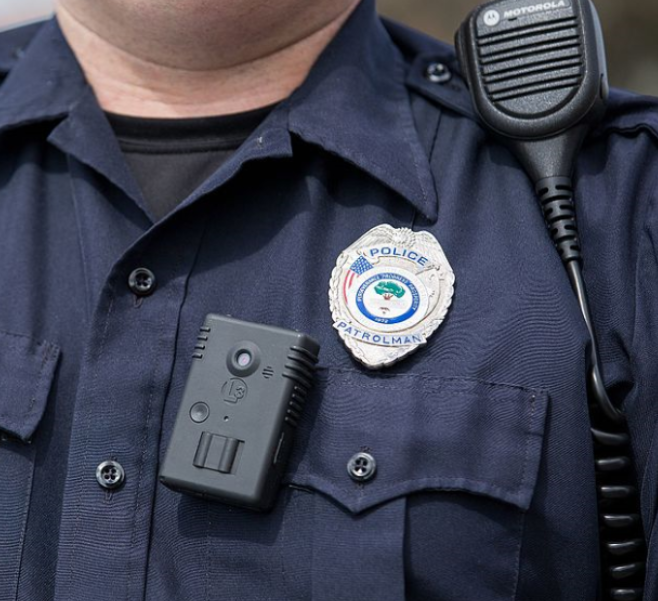State Residents Support Police Body Cameras
Survey by police union finds most people think local police do good job, but favor some reforms.

Police body camera. Photo by Ryan Johnson, CC BY-SA 2.0 <https://creativecommons.org/licenses/by-sa/2.0>, via Wikimedia Commons
Wisconsin residents’ views of the police are split along racial, age and other demographic lines but most people support reforms such as requiring police officers to wear body cameras, according to a poll commissioned by the Wisconsin Professional Police Association (WPPA).
The WPPA poll was released Tuesday as Wisconsin and the country grapple with racism and police reform nearly one year after the killing of George Floyd in Minneapolis last May. This is the ninth year the WPPA, the state’s largest police union, has released a survey, conducted by St. Norbert College Strategic Research Institute, of public opinion on the police.
The poll questions vary year to year so it’s difficult to track how public opinion has shifted in Wisconsin, but in this year’s online survey of 1,000 adult Wisconsinites, 79% of respondents said they strongly approve or somewhat approve of the way their local police force is doing its job.
That number differs greatly when broken down by demographics.
After a year in which police violence and protests in response to it have consumed people’s attention across the country, including in Wisconsin — especially after the police shooting of Jacob Blake in Kenosha last August — 83% of white respondents approve of their local police compared to 58% of non-white respondents.
Overwhelmingly, respondents said drug addiction was a problem in their communities, but people younger than 44, non-white people and people in cities with populations greater than 150,000 said racism was an “extreme” problem.
As Democrats and Republicans in the Wisconsin Legislature and U.S. Congress continue to negotiate over police reforms, a majority of respondents said the racial justice protests hurt efforts at police reform while a plurality said the protests hurt racial justice.
Most respondents, 85%, said requiring law enforcement officers to wear body cameras was an immediate priority or somewhat of a priority.
While there was less support, a majority of respondents did say they were in favor of stricter police reforms as well. For example, a majority, 58%, of respondents said they were in favor of changing the law so police officers could be sued for misconduct — which means ending the legal doctrine of qualified immunity that protects officers from liability.
Despite the majority support for a number of police reforms, there are still challenges for activists fighting for police reforms in Wisconsin; 60% of white respondents said police violence wasn’t a serious problem in Wisconsin and 57% of them said that police killings of Black people were isolated incidents, not signs of a broader problem.
Reprinted with permission of Wisconsin Examiner.





















